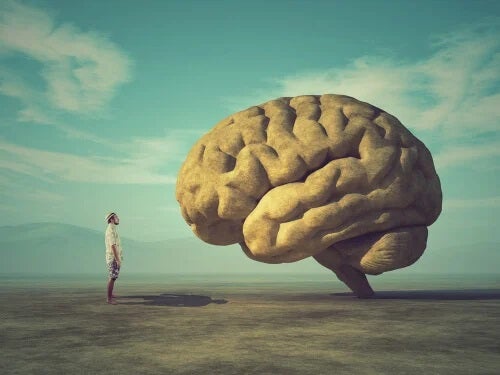Motivation to help someone, to have a minimum sense of what is right or wrong, to try not to harm others, to have a fundamental sense of justice?All of this would be a term that scientists already use frequently: the moral brain. Brain circuits that allow us to make moral and ethical decisions have already been mapped.
It is quite possible that this topic catches the attention of many people. Does this mean that our brains are equipped with a more or less calibrated moral compass?This is one aspect that philosophy had recently addressed. For several authors, ethical and moral principles are derived from religion, or rather from education and the influence of our social contexts.
- However.
- Other personalities.
- Such as the Scottish philosopher David Hume.
- Argued at the time that moral behaviors are based on human emotions themselves.
- Charles Darwin.
- In his book The Descent of Man.
- Explained something as decisive as it is important.
- Every animal with social instinct has a minimal notion of moral conscience.
These figures of our history laid the foundations of moral psychology, during the last decade several studies have been carried out that give reality to a fact, moral sensitivity is the result of our evolution, are these sets of cognitive, emotional and motivational mechanisms that encourage us to practice cooperative, prosocial and altruistic behaviors?
All of this helps us ensure our survival as a species, even if, as we well know, not everyone practices morality and ethics in the same way.
“Morality is a science that teaches not how to be happy, but how to be worthy of happiness. “Immanuel Kant.
Frans de Waal, a psychologist, primatologist and ethologist, has already explained in his book Primates and Philosophers that the fundamentals of moral behavior (as Darwin pointed out) appear in all animals that have social behaviors, which can be seen in monkeys and therefore also in monkeys. our own ancestors.
Take, for example, an illustrative and surprising fact: psychologist Paul Bloom conducted detailed research reported in the book Just Babies: The Origins of Good and Evil. In this book (mandatory for those who want to deepen the moral brain), we discover how babies already exhibit prosocial and altruistic behaviors during the first year of life.
We’ll look at more information about this below
There are exceptions, of which there is no doubt, the moral theory of the brain indicates that, in fact, there are cases in which the principle that the notion of ethics, respect and clear differentiation between good and evil is innate in all is not known, for example, that there is a gene for psychopathy, and also that certain dementias or frontotemporal injuries can cause a person to behave in a loving way.
Dr. Pascual Leone’s neuroanatomical study revealed:
Patricia Churchland, a neurysiologist, is the author of the book Moral Brain, no doubt this work is fundamental to understanding much of this theory, which is finding more and more empirical support. Through the pages of this book, we understand the relevance it has. certain aspects, such as cooperation, the defense of the weak, the care of children and the family, among others, have for many species with social behaviors.
Our brain has evolved to understand that exclusion, such as aggression, is not proper behavior, they are not taking advantage of us. The vast majority of us come into the world knowing that violence and isolation are not good for us or others, and we know this because there is an essential molecule that not only tells us, but also encourages us to practice positive social behavior.
We’re talking, of course, about oxytocin. It’s also what drives the moral brain. Is this what generates trust, attention, care, affection, the importance of ties?So, let’s think about this reality. We will try to understand that cooperation, respect and altruism not only make us worthy as individuals, but are vital needs for human beings.

